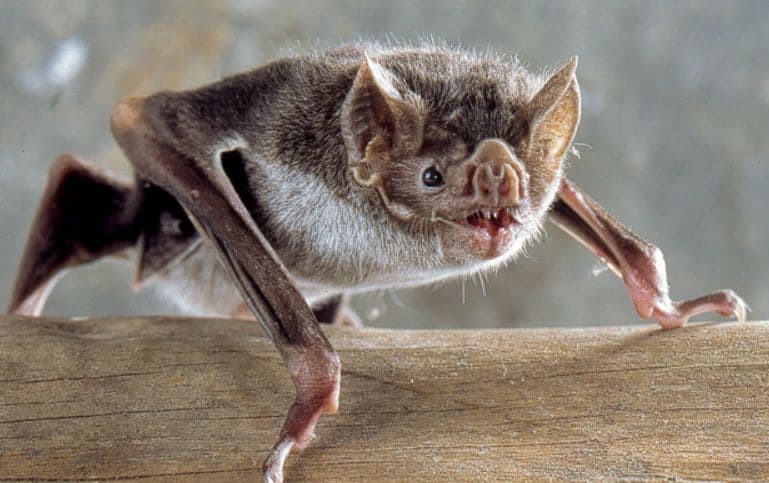Vampire bats keep their social distance and spend less time together if they are sick so they don’t infect others. Scientists suggest that this behavior may be common for all species.
Common vampires use social distancing to slow the spread of infections in the colony. As found by American researchers, bats, which were injected with a fever-causing lipopolysaccharide, are less likely to come into contact with relatives and spend less time with them. Previously, similar results have already been obtained during experiments in captivity, but this time scientists were able to prove that similar behavior is typical for wild vampires.
The common vampire bats (Desmodus rotundus) are well known for their unusual food preferences: these bats feed almost exclusively on the blood of large mammals, including humans. However, scientists are more attracted to their other trait – a tendency to complex social behavior. For example, vampires share food with neighbors in the colony and even find friends among them.
Unfortunately, life in society carries not only pros, but also disadvantages. If one individual in the colony gets an infection, there is a high risk that all its members will become infected. Experiments in captivity show that vampires have a way to reduce the rate of spread of infectious diseases – a sick bat simply reduces activity and communicates less with relatives – but until now it was not known whether such behavior is characteristic of wild populations.
A team of experts led by Simon P Ripperger of Ohio State University decided to check it out. Researchers went to Belize, where they captured about forty females from a colony of vampires, located in a hollow tree. For the experiment, 34 individuals who were not pregnant were selected. Half of them were given lipopolisacharid, a non-pathogenic antigen that triggers an innate immune response, and half of them were given a sodium phosphate buffer that has no effect on the body.
Then the vampires were fitted with sensors that reacted to each other’s rapprochement and released. The design of these devices allowed scientists for three days each morning to receive data on the mutual location of labeled females, without invading the colony. Three sensors fell during the experiment, so a total of 16 “sick” vampires and 15 of their counterparts from the control group were included in the analysis.
The researchers found that vampires who received lipopolysaccharide injections spent less time with their relatives. Within six hours after treatment, the network of contacts of “sick” bats was four less than that of their colony neighbors. In addition, such individuals spent 25 minutes less than vampires from the control group next to their relatives. If the average bat, which has not been treated with lipopolisacharid, was near other “healthy” members of the colony fifteen minutes per hour, “sick” and “healthy” individuals contacted each other for only ten minutes per hour.
Previous observations in captivity indicate that vampires who receive an injection of lipopolysaccharide become less sociable: they come into contact with relatives less often and emit communication signals. A new study proves that representatives of wild populations behave in a similar way. According to the authors, this indicates adaptations to slow the spread of infections in vampire colonies.
Bats can transmit infections not only to each other but also to humans. It is believed that these mammals are the original hosts or distributors of viruses that cause COVID-19, Ebola, rabies, SARS, the Middle East respiratory syndrome (MERS), and Nipah virus. However, scientists argue that bats infections are not well understood to consider these mammals the main source of zoonoses, diseases transmitted from animals to humans.
The results of the work were published in the journal Behavioral Ecology.
